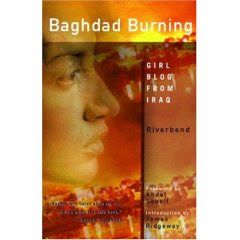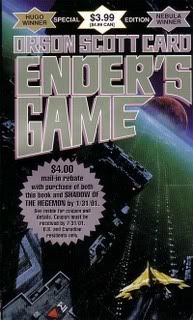... I'll meet you 'round the bend my friend, where hearts can heal and souls can mend...
Hello all, this is Adam, brother of Nat-Wu and fellow blogger for Three Wise Men. Today is my first time posting on the book blog. Over the past few weeks I have been taking a college course at the University of North Texas where I attend on modern Middle East history. We have to read several books, many of which are first-hand accounts of historical events (Al-Jabarti's chronicle of Napoleon's invasion of Egypt, for example), but the last one we read was particularly interesting. "Baghad Burning: Girl Blog from Iraq" is a collection of blog posts from an Iraqi woman during the American invasion and subsequent occupation of Iraq, going by the pseudonym of Riverbend (it also features several passages written by James Ridgeway detailing the events going on in Iraq during the time of her writing, such as the invasion of Fallujah, the Abu Ghraib scandal, etc.). The first of two books so far, this collection includes posts from August 2003 through September 2004. The blog is still ongoing, with the the last post made on April 26th, 2007. You can find it
here.
Riverbend is a 24-year-old computer programmer who lives with her mixed Shia-Sunni family, including her brother known simply as "E." With a grasp of English superior to most Americans, her writing is so eloquent, witty, and emotional you'll completely forget your reading someone's blog. As she has noted, many didn't believe she was really an Iraqi, thinking that no one from Iraq could possibly be as educated and informed as she is (again, she puts the average American to shame. As she says, how come everyone there knows American culture and politics so well, but Americans know so little about them?).
What really sells the blog and book of course is the unmatched picture you get of the day-to-day struggles of life for Iraqis during the occupation (something that was bad then, but even worse now), including raids on neighbors, fuel shortages, infrequent electricity, etc.. But she is also keenly aware of Iraq's political situation, using eyewitness accounts and also following local and international news to maintain an ongoing and detailed commentary on the corruption of the provisional government, the early formation of the Iraqi constitution, the rise of extremists such as Al-Sadr and the decline of women's rights, as well as blistering attacks on the American media (like for not understand that not everyone in the Middle East is "Arab," such as Iranians and Pakistanis). Always opinionated, she absolutely gives it to Paul Bremer and Chalabi and all of the other similarly incompetent people put in charge of running Iraq at the time. Honestly, if we had just been following Riverbend's blog, we should have been able to foresee some of the worst mistakes made in the first year of the war. She also makes fairly whimsical, but astute observations. Such as how the idea of putting Turkish troops into Iraq because they are Muslim would be like if North Korea invaded the U.S. and put Mexican troops in just because they are Christians. It just shows how much we don't think about.
No doubt critics would challenge her for never mentioning the horrors of Saddam Hussein's regime, but why is that necessary? We are all aware of that. It's her situation we weren't aware of, and most are only beginning to be aware of it now. Furthermore, she - like most Iraqis - never
personally suffered under Saddam (though they did under the international economic sanctions placed on Iraq and the constant bombings after the Persian Gulf War). While he was unquestionably a brutal dictator who murdered and tortured people, people like Riverbend didn't before have to deal with the kind of daily death and destruction that goes along with war and occupation, no matter how benevolent American troops may strive to be in Iraq. Riverbend didn't see daily raids on her neighbors, lack electricity and a job, or attend countless funerals for her friends and relatives before the American invasion and occupation. Whether you support the war or not, Riverbend's point-of-view is an important one we should try to understand to grasp why Iraq is increasingly collapsing into the chaos it is. People are desperate, and desperation drives people to extremism.
Of course, Riverbend received a lot of hate mail for her views. Here's her response:
...when I hear talk about "anti-Americanism" it angers me. Why does America identify itself with its military and government? Why does being anti-Bush and anti-occupation have to mean that a person is anti-American? We watch American movies, listen to everything from Britney Spears to Nirvana and refer to every single brown, fizzy drink as "Pepsi."I hate American foreign policy and its constant meddling in the region... I hate American tanks in Baghdad and American soldiers on our streets and in our homes on occasion... why does that mean I hate America and Americans? Are tanks, troops, and violence the only face of America? If the Pentagon, Department of Defense and Condi are "America," then yes - I hate America.I think there's plenty of people in America who agree with and understand that sentiment.
The book ends with a powerful post made after Riverbend watched a bootleg copy of "Fahrenheit 9/11" around the time of September 11th, 2004:
Three years ago, Iraq wasn't a threat to America. Now it is... I constantly wonder, three years after 9/11, do Americans feel safer? When it first happened, there was sort of a collective shock in Iraq... How do we feel about it this year? A little bit tired.We have 9/11's on a monthly basis... The number of Iraqis dead since March 2003 is by now at least eight times the number of people who died in the World Trade Center...September 11... he sat there, reading the paper. As he reached out for the cup in front of him for a sip of tea, he could vaguely hear the sound of an airplane overhead. It was a bright, fresh day and there was much he had to do.. but the world suddenly went black - a colossal explosion and then crushed bones under the wight of concrete and iron... screams rose up around him... men, women, and children.. shards of glass sought out tender, unprotected skin.. he thought of his family and tried to rise, but something in him was broken... there was a rising heat and the pungent smell of burnish flesh mingled sickeningly with the smoke and the dust... and suddenly it was blackness.9/11/01? New York? World Trade Center?No.9/11/04. Falloojeh. An Iraqi home.Whether you agree with Riverbend's view of the war or not, hers is an important one that should be listened to. Certainly as much as any American blogger, or talking head on TV. I daresay a conservative girl who sits in front of me in my class is slowly opening her mind up because of this book. On that note, I recommend it highly and I cannot wait to read the next collection.







